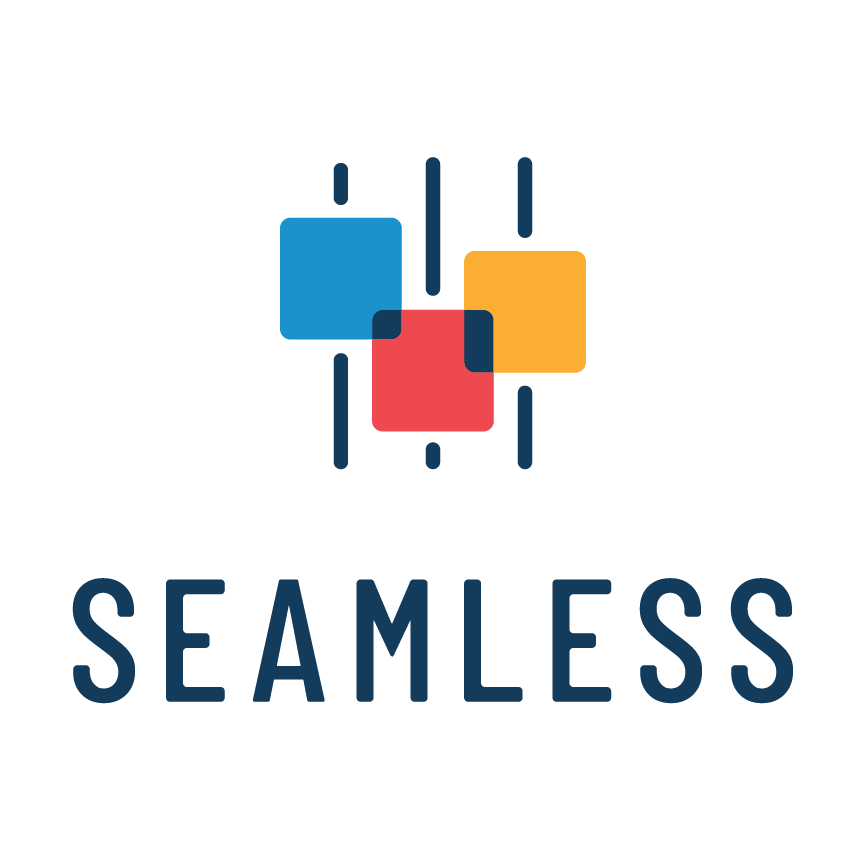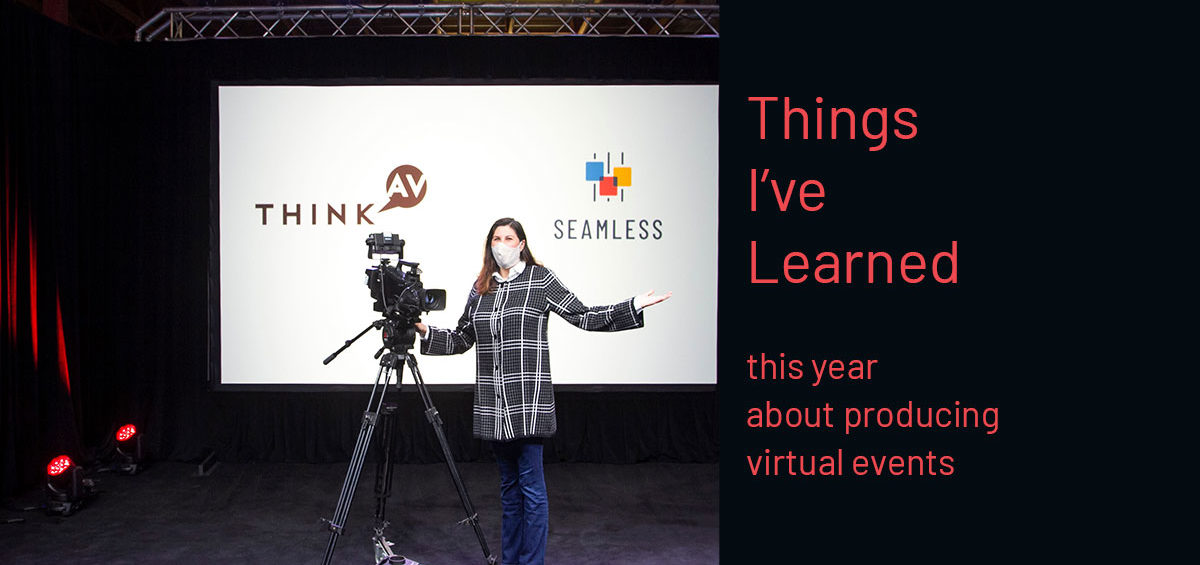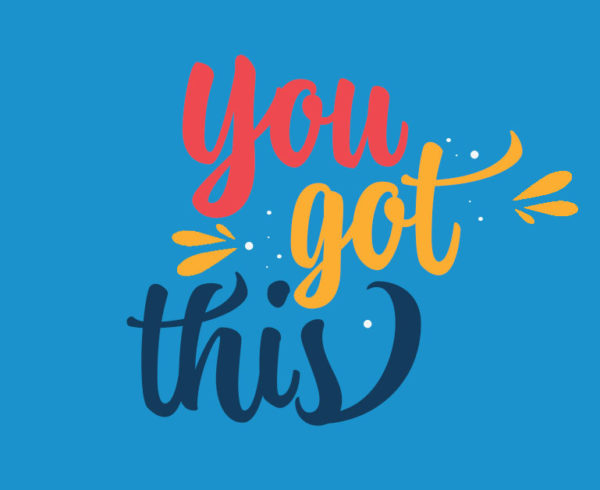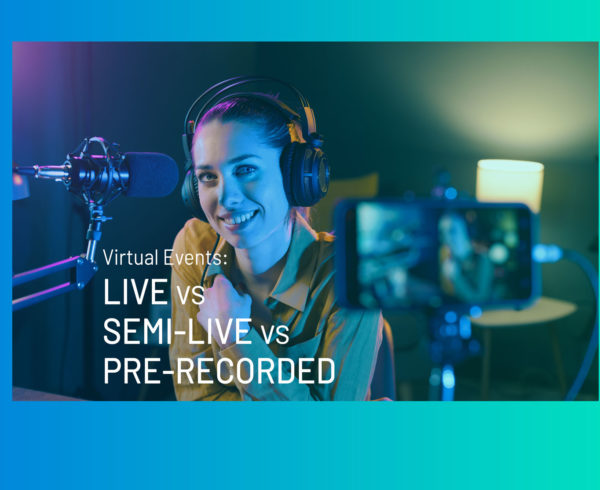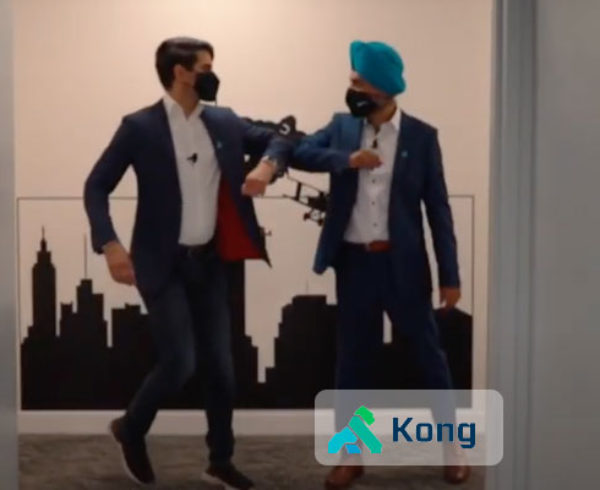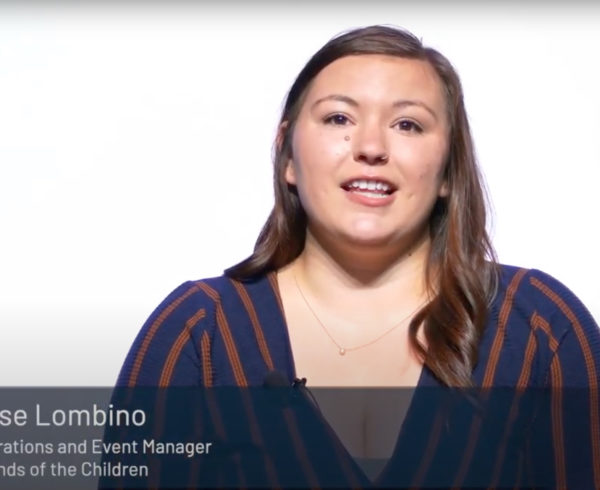As 2020 winds down and I reflect on the monumental changes COVID-19 brought with it – not only to the world, but specifically to our industry, I wanted to share a few things I’ve learned.
Events have always played a big part in company culture, and with the COVID-19 pandemic transitioning most of 2020’s events from in-person to virtual, many organizations realized there is value to holding a virtual event, making industry experts feel safe in saying that virtual events are here to stay. I think it’s also safe to say that the assumption that anyone can pull off a virtual event with a free Zoom account is no longer valid. If you have attended a virtual event that was planned by a professional you can see the difference. It’s no wonder that event planners are feeling so much pressure.
What was pretty straightforward for planning in-person events has completely changed for virtual events. More often than not planners realize this and find themselves reaching out to professionals for help. However, our experience this year has taught us that most event planners aren’t sure what to even ask for from their production company.
As good communication is the key to every successful relationship, the relationship between an event planner and their AV company is no exception. In producing many virtual events this year from large to small, these are the key takeaways to consider in communicating with your AV company.
Event Purpose and Goal
I start here because the objectives of your event will dictate every step of the planning process for the event —from whether you need to use an event platform, to the speakers you choose, and the production value of your content.
We just finished a project that was a lot of fun to work on, and is a good example of why it’s important to clearly define expectations and goals. Based on our initial conversations with the client about the project, the primary scope of work involved going on-location to do a video shoot. When we arrived to shoot the footage, we learned the client’s expectations had changed and that they also wanted us to take care of the creative work for the project. This caught us off guard because we had not resourced the project for those services. Fortunately, our on-site technicians had the skill to level up to client needs, but since the project wasn’t scoped accurately, it could have been a really rough shoot. The end result was fabulous but had proper communication taken place we could have avoided a few of the hiccups we experienced.
Timeline
One of the most important things to communicate to your audio visual company is the timeline of your project. They can then help you determine a realistic window of time for the scope of the work that needs to be done and set deadlines for each step of the planning process. Like all important projects, there are key tasks and milestones that build upon each other and need to be understood and completed on time. Failure to do either can put many factors, including the success of the event, at risk. Since virtual events are new to event planners and come with a learning curve, establishing timelines is critical.
Budget
It is also important for your AV company to know what you’re working with in terms of budget and whether or not it corresponds to your requirements. Discuss with your AV company the type of experience you would like your attendees to have, keeping in mind your company’s culture and expectations . Does the event need to be polished and perfect? Or, will you be able to laugh off a few bumps in the road – such as audio glitches or a presenter’s slides appearing blurry? Talking through your budget with your AV company will help both sides set realistic expectations for the finished product.
Platform
Connect your production team with the platform you are using asap because platforms are constantly evolving. Recently, we worked with a client that used a platform we were already familiar with, but we had to rethink our whole approach when we discovered that the platform changed the way it allowed content to be streamed. Platform software providers do their best to make their products appear to work with just the click of a button, but the underlying technology can be complicated. Your production company will be able to ensure your content is produced in the correct way to be compatible with your platform.
Content
As virtual events surged through 2020, audiences gradually built up less tolerance for poorly produced content. Attendees have come to expect sharp video and crisp sound as part of the experience you are offering them. Poor audio visual components such as dead microphones, frozen presentations, or stark lighting can kill the energy of your event on the spot. Remember that attendees are coming to your event to hear and see the information you have to offer them, so it’s important not to overlook how it gets produced.
Trading Final Output for Comfort
This is a tricky topic for me because above all, we want our clients to be comfortable with the technology they are using for their presentation. Most clients are very experienced and comfortable with Zoom-type recordings for their presentations, and in some scenarios, that would work just fine. However, as AV experts we have tools that will improve the quality output that aren’t as familiar to clients as Zoom. There is a certain threshold where comfort is traded for final output quality.
We had one event that we ended up re-quoting eight times to meet the budget limitations of our client. As various services were gradually eliminated from the original quote, the production value was lowered. Each new quote was a trade-off for quality because there was a higher level of risk. With virtual events, there are many variables outside the realm of control, such as what device or browser attendees will log in with, internet speeds, connection issues, etc. Be aware that each time you cut things from your plan, you increase the risk of diminished quality.
That being said, we understand that everyone has budget constraints and there are almost always ways to cut corners, just be mindful in choosing where you cut the budget and the potential tradeoff. There is usually a reason your AV company quoted your project the way they did the first time, so it’s best to check assumptions and ask what is at risk if you do need to make cuts.
At Seamless, we are very conscious of budgets from the beginning and want you to get the most value for your dollar. We will come up with solutions to get you what you want with the budget that you have. We completely understand that this is why you hired an expert— to help you determine the most bang for your buck in terms of the finished product.
All Things Are Difficult Before They Are Easy
Last, one of the most important things I have learned this year is that change can be hard and painful. However, we are an industry that is ever-changing and evolving, and we’ve learned to be resilient. This is an industry that I am excited to contribute innovative solutions to finding a new normal to, and one that I am proud to call mine.
